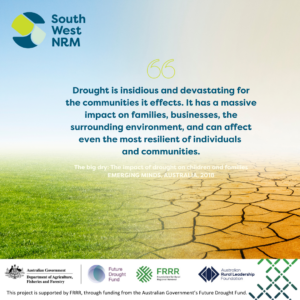A South West NRM project designed to reduce community harm caused by the potentially-crippling social impacts of drought has attracted an $86,935 grant from the Federal Government Future Drought Fund.
South West NRM will also oversee delivery of four additional drought preparation projects to be delivered in the South West by partner not-for-profits which received grants as well, totalling a drought fund investment of $343,000 for the region.
Drought months in the South West are expected to increase by up to 80 per cent in the next 50 years, according to the region’s Drought Resilience Adoption and Innovation Hub with less rainfall in winter and spring creating increased water demands.
Just recently the Bureau of Meteorology reported Western Australia had posted its warmest winter on record in 2023 with statewide rainfall between 1 June and September 30, 46 per cent below the seasonal average.
South West NRM Sustainability and Environment Lead Linda Metz said: “The deep social impact of drought not just on producers but on broader communities is well documented and acknowledged through these funding allocations received via the Drought Fund’s Foundation for Rural and Regional Renewal.”
“Projects receiving these grant allocations all aim to strengthen the ability of agriculture-dependent communities like ours to work together in preparing for future drought or other natural disasters,” Linda said.
South West NRM will use its grant to deliver a Community Resilience Network aimed at improving capability, coordination and collaboration between organisations and groups with knowledge and services, which are currently working in isolation, but together have potential to significantly enhance available supports.
Work on developing a Community Resilience Network will start early in the new year with a call-out for groups and organisations to join the conversation. Broad participation will be sought and include representatives from youth, First Nations peoples, farmers, education providers and healthcare professionals.
Key topics will include:
· Supporting social cohesion through natural disasters;
· Mental health and wellbeing;
· Available support in times of crisis.
“This allows communities to start preparing for drought by identifying opportunities to share resources, find novel or creative ways to solve problems and feel that they have somewhere to go for help when it’s needed,” Linda said.
The other four groups delivering projects with a shared theme of improving social responses to drought include South West NRM Association members Blackwood Basin Group and Southern Forest Community Landcare as well as Southern Forest Arts and Goomburrup Aboriginal Corporation.
This project is supported by FRRR, through funding from the Australian Government’s Future Drought Fund.




